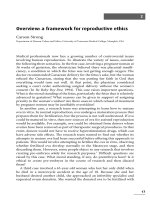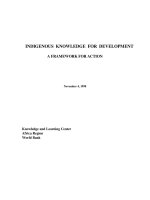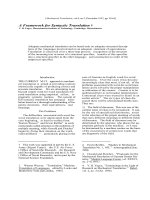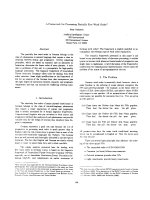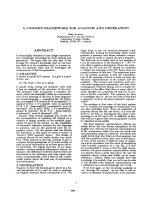Building Ireland’s Smart Economy: A Framework for Sustainable Economic Renewal potx
Bạn đang xem bản rút gọn của tài liệu. Xem và tải ngay bản đầy đủ của tài liệu tại đây (706.76 KB, 104 trang )
PREPS
C M
Y K
PREPS
C M
Y K
PREPS
C M
Y K
ISBN 978-1-4064-2244-3
PREPS
C M
Y K
Building Ireland’s Smart Economy
A Framework for Sustainable Economic Renewal
Building Ireland’s Smart Economy A Framework for Sustainable Economic Renewal
Taoiseach cover 16 Dec 16/12/2008 16:01 Page 1
Building Ireland’s Smart Economy
A Framework for Sustainable Economic Renewal
BAILE ÁTHA CLIATH
ARNA FHOILSIÚ AG OIFIG AN TSOLÁTHAIR
Le ceannach díreach ón
OIFIG DHÍOLTA FOILSEACHÁN RIALTAIS,
TEACH SUN ALLIANCE, SRÁID THEACH LAIGHEAN, BAILE ÁTHA CLIATH 2,
Nó trid an bpost ó
FOILSEACHÁIN RIALTAIS AN RANNÓG POST-TRÁCHTA,
AONAD 20 PÁIRC MIONDíOLA COIS LOCHA, CLÁR CHLAINNE MHUIRIS,
CONTAE MHAIGH EO,
(Teil: 01 – 647 – 6834 / 37 nó 1890 213 434; Fax: 01 – 647 6843 nó 094 – 937 8964)
nó trí aon díoltóir leabhar.
© Government of Ireland 2008
DUBLIN
PUBLISHED BY THE STATIONERY OFFICE
PRN No: A8/1932
To be purchased directly from the
GOVERNMENT PUBLICATIONS SALE OFFICE
SUN ALLIANCE HOUSE, MOLESWORTH STREET, DUBLIN 2,
or by mail order from
GOVERNMENT PUBLICATIONS, POSTAL TRADE SECTION,
UNIT 20 LAKESIDE RETAIL PARK, CLAREMORRIS, CO. MAYO
(Tel: 01 – 647 6834 / 37 or 1890 213 434; Fax: 01 – 647 6843 or 094 – 937 8964)
or through any bookseller.
www.taoiseach.gov.ie
Price €7.00
ISBN 978-1-4064-2244-3
December 2008
Department of the Taoiseach,
Government Buildings, Upper Merrion Street, Dublin 2.
FOREWORD
Ireland faces challenging economic circumstances but there are also great opportunities on the
horizon. While it is imperative we successfully plan our way through the current economic
storm, we must also restructure our economy so that we can be in pole position when the
global recovery begins.
Building Ireland’s Smart Economy sets out an ambitious set of actions to reorganise the
economy over the next five years and to secure the prosperity of current and future
generations. It sets out a framework to address the current economic challenges and to build a
‘Smart Economy’ with a thriving enterprise sector, high-quality employment, secure energy
supplies, an attractive environment, and first-class infrastructure.
This Framework does not seek to outline all the reforms or measures which will be required
across the economy. Instead, it sets out a clear direction which the Government intends to
pursue and some of the specific actions we will take in the short-term to help us get there.
Neither does the Framework address all of the policy challenges which arise from the
interdependence of economic and social policy issues as set out in Towards 2016, reflecting
the important work of the NESC in this area. The primary objective of this document is to
outline a pathway forward which acknowledges the severe short-term economic challenge,
while focusing on how we can return to sustainable growth in the medium-term.
The Action Areas and Points within this Framework are a combination of existing policies on
which the Government will build and new actions that will drive the restructuring of the
economy. This combination is important because a principal objective of this Framework is to
reprioritise the business of Government and to re-focus resources in a manner that will hasten
economic renewal. On occasion, that will mean other policy issues having to wait until the
economic situation has improved. We will make those choices where necessary.
The lesson from the past is that providing a clear sense of direction by setting out a long-term
vision and a set of goals, and by prioritising the resources needed to achieve them, secures
immediate gains from increased confidence and a determination to deliver. There won’t be
overnight results – but there can be, and will be, successes over the period ahead. Success will
come from taking the right decisions, implementing them quickly and effectively, and acting
consistently to support the enterprise sector in generating growth and jobs.
The successful implementation of this Framework will not just be delivered by the policy
measures and investments put in place by the Government. It requires a national effort, in
particular to meet short-term, but crucial, challenges. The Government intends to work with
the Social Partners on the development and implementation of this Framework, which is
consistent with the principles and vision underpinning Towards 2016, using the well-
established mechanisms of the social partnership process.
I met with the Social Partners on Tuesday 16
th
December and outlined the Government’s
thinking about the elements of this Framework for Economic Renewal. While it is the duty
of the Government to provide leadership, I believe that the best prospect of achieving what we
all want for our country, as reflected in the goals of Towards 2016, lies with a collective effort
grounded in the values of partnership.
I invited the Social Partners to participate in detailed and intensive discussions on measures to
develop further and then implement this Framework for Economic Renewal. I invited them to
work with us in a constructive spirit to contribute their views before the Government
concludes the detailed actions to implement the Framework. I am glad that their response
was extremely positive.
The path to economic renewal begins here.
Brian Cowen T.D.,
Taoiseach
BUILDING IRELAND’S SMART ECONOMY
A
FRAMEWORK FOR SUSTAINABLE ECONOMIC RENEWAL
2009-2014
CONTENTS
FOREWORD
EXECUTIVE SUMMARY 1
1.
Introduction 24
2.
The Challenge Facing the Irish Economy 26
3.
Strengths of the Irish Economy and Threats to its Performance 29
4
Smart Economic Growth Action Plan 32
5
Action Area 1. Securing the Enterprise Economy 41
6. Action Area 2. Building the Ideas Economy – Creating ‘The Innovation Island’ 60
7.
Action Area 3. Enhancing the Environment and Securing Energy Supplies 82
8.
Action Area 4. Investing in Critical Infrastructure 92
9.
Action Area 5. Efficient and Effective Public Services and Smart Regulation 99
10. Ensuring Implementation 105
EXECUTIVE SUMMARY
Introduction
This Framework for Sustainable Economic Renewal sets out the Government’s vision for the
next phase of Ireland’s economic development, which is predicated on successfully
addressing the severe economic situation we face, restoring stability to the public finances,
and beginning the process of restoring competitiveness. Building on the significant strengths
of the economy, which provide strong foundations for future export-led economic growth, this
document sets out an ambitious set of actions to develop Ireland’s Smart Economy.
Our strategy is to:
• address the current economic challenges facing the Irish economy by stabilising the
public finances, improving competitiveness, assisting those who lose their jobs, and
supporting Irish business and multinational companies;
• invest heavily in research and development, incentivise multinational companies to
locate more R&D capacity in Ireland, and ensure the commercialisation and retaining
of ideas that flow from that investment;
• implement a ‘new green deal’ to move us away from fossil fuel-based energy
production through investment in renewable energy and to promote the green
enterprise sector and the creation of ‘green-collar’ jobs;
• develop first-class infrastructure that will improve quality of life and increase the
competitiveness of Irish business.
The Smart Economy
The Smart Economy combines the successful elements of the enterprise economy and the
innovation or ‘ideas’ economy while promoting a high-quality environment, improving
energy security and promoting social cohesion. A key feature of this approach is building the
innovation or ‘ideas’ component of the economy through the utilisation of human capital - the
knowledge, skills and creativity of people - and its ability and effectiveness in translating
ideas into valuable processes, products and services. A second important aspect is the
greening of the economy and the development of green enterprise.
We can learn lessons from the current international financial crisis and pursue these twin
initiatives to ensure the creation of high quality, well-paid employment which lasts through
any future upturns and downturns in the global economy.
7
The Smart Economy has, at its core, an exemplary research, innovation and
commercialisation ecosystem. The objective is to make Ireland an innovation and
commercialisation hub in Europe – a country that combines the features of an attractive home
for innovative R&D-intensive multinationals while also being a highly-attractive incubation
environment for the best entrepreneurs in Europe and beyond. This will be the successful
formula for the next phase of the development of the Irish economy and for delivering quality
and well-paid jobs.
The Smart Economy is a ‘Green Economy’ in that it recognises the inter-related challenges of
climate change and energy security. It involves the transition to a low-carbon economy and
recognises the opportunities for investment and jobs in clean industry. The core of this Green
New Deal is a move away from fossil-fuel based energy production through investment in
renewable energy and increased energy efficiency to reduce demand, wastage and costs.
This sustainable approach to economic development complements the core strength of our
economy in the use of natural resources in the agriculture, forestry, fisheries, tourism and
energy sectors. It recognises that our manufacturing industries are already relatively clean and
green in the low level of resource inputs they use and environmental outputs they create. It
will allow us develop a digital services export economy which will only require a high speed
broadband network, a renewable electricity supply and our own ingenuity to succeed.
The resolution of Lisbon Treaty issues is important to the success of this plan as any
uncertainty about Ireland’s future position in the European Union is a serious threat to our
future economic performance, in particular, the attraction of foreign investment. At the same
time, there is now an important all-island dimension to all aspects of Government policy and,
to the extent that it is appropriate, and by agreement with the Northern Ireland Executive, all
of the policies, programmes and initiatives in this Action Plan will take full account of the
mutual benefits available through North-South co-operation.
8
Meeting the Challenge Facing the Irish Economy
The ambitious vision and implementation plan in this document can only be achieved if we
effectively manage the serious economic challenges we face at present.
A fall in GNP and rising unemployment over the period 2008 – 2010 is forecast and a return
to positive and stable economic growth, in the later years of this five-year framework, can
only be achieved if we restore stability and order to the public finances. Tax revenues are now
nominally at 2005 levels which, combined with the very significant increase in current
spending in the intervening years, means that we have a substantial funding gap. It is likely
that borrowing to pay for day-to-day services will be in the region of €3.5 billion this year and
will be higher next year. This is not sustainable and the interest costs mean that more and
more of our day-to-day resources are simply going to pay interest as opposed to paying for
services.
A crossroads has been reached in the nation’s economic development. If we are to implement
this plan, and be well-placed to prosper from the anticipated upturn in the global economy in
2010, we must address competitiveness issues and the serious shortfall in the Exchequer
finances. Urgent priority must be given to returning the public finances to a stable and
sustainable position. A national effort is required and, with this in mind, the Government will
be engaging with the Social Partners and other stakeholders to ensure we take the right
decisions in the interests of securing the economic future of the Irish people.
Government Actions to Build the Smart Economy
The Framework consists of a set of interlocking elements each of which is reflected in a series
of Action Points, which demonstrate the specific measures which are being taken as a matter
of urgency. The five Action Areas of the Framework are:
1. Meeting the Short-term Challenge – Securing the Enterprise Economy and Restoring
Competitiveness;
2. Building the Ideas Economy – Creating ‘The Innovation Island’;
3. Enhancing the Environment and Securing Energy Supplies;
4. Investing in Critical Infrastructure;
5. Providing Efficient and Effective Public Services and Smart Regulation.
9
Action Area 1: Meeting the Challenge – Securing the Enterprise Economy
and Restoring Competitiveness
Meeting the challenge of securing the economy in what are among the most difficult global
economic circumstances since the foundation of the Irish state is an absolute priority for
Government. We are implementing a strategy to manage the current short-term difficulties,
maximise the rate of pick–up in economic activity, restore competitiveness, stabilise the
banking sector, and assist those who lose their jobs during the downturn, while respecting the
unavoidable constraints on policy arising from the fiscal and international environment. This
strategy to secure Ireland’s Enterprise Economy will provide a strong base from which to
pursue the next phase of economic development.
Key actions:
• A fiscal support is being applied to pump billions of euro into the economy through
unparalleled investments in infrastructure which will make the economy more
competitive. This constitutes proportionately the largest capital programme in the EU;
• Capital investment allocations will be reviewed to identify scope for re-prioritisation
towards more labour-intensive activities;
• Significant funding will be made available for a range of housing programmes and
insulation schemes (see Action Area 3);
• The public finances must be restored to a sustainable position and the Government
will engage with the Social Partners to chart a way forward;
• The Special Group on Public Service Numbers and Expenditure Programmes will
have a significant role to play by identifying options for expenditure adjustment;
• Steps to broaden the tax base will be taken, having due regard to the
recommendations of the Commission on Taxation;
• The Government’s focus will continue to be on securing a stable and active banking
sector which serves the needs of the Irish economy; we will support, alongside
existing shareholders and private investors, a recapitalisation programme for credit
institutions in Ireland of up to €10 billion;
• Our low corporate tax regime has been a central pillar of Ireland’s industrial policy
and we will maintain competitive, low corporation tax rates (including the 12.5%
rate) and introduce a range of pro-enterprise tax measures to stimulate activity and
employment growth;
10
• Activity and employment in the construction sector will benefit from substantial and
sustained capital investment under the NDP; in particular the Exchequer will provide
€1.66 billion for housing in 2009, we are reforming Stamp Duty applicable to
commercial property, and Enterprise Ireland will provide a construction sector export
service to assist companies and professionals to market their products and services
abroad;
• Within the Social Partnership framework, we will seek to ensure wage moderation
and flexibility consistent with our competitive position, while also securing industrial
peace and stability;
• We will publish a whole-of-Government response to recommendations contained in
reports of the Competition Authority within nine months of their publication;
• We will pursue reforms to reduce legal costs and tackle factors which continue to
drive costs and delays arising from the legal system;
• We will work to a target of reducing administrative burdens on business by 25% by
2012, beginning with concrete measures in Taxation, Environment, Health and
Safety, Statistics, Employment and Company Law and introduce a consolidated
inspections programme to reduce the number of inspection visits to business;
• The Government will improve co-ordination between Departments and Agencies in
order to improve access to job search, training and education, community and
employment programmes and will provide a range of opportunities for up-skilling
and re-skilling;
• Specific actions include increased Job Search Supports capacity; an initiative to target
young people who become unemployed; additional places, predominantly in training,
for the unemployed; and we will bring forward further measures in this area in early
2009;
• Retraining of construction and other workers will be re-focused and enhanced in
order to support retrofitting of our housing stock and provide the skills for the green
economy;
• Initiatives to protect mortgage holders include the Government’s insistence that banks
participating in the Guarantee Scheme confirm their compliance with the Irish
Banking Federation (IBF) Code of Practice on Mortgage Arrears, support through the
Money Advice and Budgeting Service, and careful monitoring of practices in relation
to mortgage arrears and a pro-active approach to any further regulatory or other steps
required;
• A range of measures is included to build on the strengths in the Agriculture, Fisheries
and Food Sectors and exploit the potential of an export-led, natural resources based
11
Agri-food sector. They include income support and capital investment on farms,
environment and animal welfare enhancing schemes, further investment in the food
processing sector, supporting innovation, marketing and research and development
throughout the sectors and continued support for sustainable forestry. Measures to
overcome the recent difficulties in the pigmeat sector are also being implemented;
• A range of measures will be introduced to re-invigorate the international financial
services industry including: reform of the legislative framework for financial services
in Ireland, support for a targeted upskilling programme for the industry to enhance the
skill base necessary to attract and retain investment; increased support for Research,
Development and Innovation activity; extending the number of double taxation
treaties; and vigorous promotion targeting new opportunities in areas such as
specialist leasing, pensions, technology development and sovereign wealth funds.
12
Action Area 2: Building the Ideas Economy – Creating The ‘Innovation
Island’
The key objective of this Action Area is to make Ireland an innovation and commercialisation
hub of Europe – a country that combines the features of an attractive home for innovative
multinationals while also being a highly-attractive incubation environment for the best
entrepreneurs from Ireland and overseas. It builds on Ireland’s significant multinational
presence and Ireland’s stock of highly-skilled workers and higher education institutions by
incentivising greater investment, in high-value research and development areas in science and
technology. In addition, the objective is to create an exemplary research, innovation and
commercialisation ecosystem which capitalises on the Government’s unprecedented €8.2
billion investment in science and technology. This will be achieved by mobilising Ireland’s
cohesive ‘Team Ireland’ agencies to translate knowledge creation into economic return. It
will involve creating a similarly R&D-intensive indigenous enterprise sector through the
provision of strong supports for start-up companies and entrepreneurs whose companies will
provide the employment of the future.
Key actions:
• Up to €500 million will be generated to create a venture fund, known as ‘Innovation
Fund – Ireland’, to support early stage R&D-intensive SMEs. The capital will be
divided into five venture funds of between €75-150 million;
• The new fund will be operated in coordination with existing financial supports from
Enterprise Ireland for early stage R&D intensive SMEs, in order to ensure efficient
allocation of resources and avoid overlapping supports;
• More favourable tax treatment of the carried interest of venture capital is being
introduced at a rate of 15% for partnerships and 12.5% for companies to encourage
the availability of so-called ‘smart capital’ for investing in start-up innovative
companies who will be the employers of the future;
• The multinational community will be incentivised to intensify innovative, high-value
activity and technological convergence which will provide quality jobs;
• Entrepreneurship, business start-ups and employment creation will be driven by a
number of highly-favourable taxation measures including exemption from
corporation tax arising in the first three years of operation for business start-ups, a tax
abatement scheme for restricted shares, and a refund in the case of forfeited shares, to
assist companies, including start-up companies, in retaining key employees;
13
• A Remittance Basis of Taxation scheme will apply, in appropriate circumstances, to
income earned from the exercise of an employment in this State where the payment is
made outside of the State;
• We are introducing significantly enhanced R&D tax arrangements; an industry-led
Competence Centre Programme is being rolled-out in Applied Nanotechnology,
Advanced Manufacturing Productivity, Energy, BioEnergy, Composites and Advance
CMOS Circuits; and an action plan will be developed for expanding research and
development in converging technologies combining our science-based strengths with
enterprise capacity;
• Revised arrangements for the taxation of intellectual property will be developed
during the course of 2009;
• In the light of the above, we will review the potential for the active management of
Intellectual Property, whether generated or domiciled in Ireland;
• Fast-track visa arrangements will be provided for key researchers and highly skilled
staff and their spouses. They will also be eligible for fast-track progression to long-
term residence;
• Manufacturing will continue to play a fundamental part in our economic future, with
an increasing focus on securing competitive advantage through innovation, R&D and
design, and we are establishing a Manufacturing Forum to support the sector;
• There will be continued substantial investment in R&D through implementation of
the Strategy for Science, Technology and Innovation, as demonstrated by significant
allocations in Budget 2009, launch of a 5
th
cycle of the Programme for Research in
Third-Level institutions and the preparation, by June 2009 of an Action Plan for
Health Research;
• We will focus on the promotion of commercialisation of opportunities arising from
research undertaken including through the Commercialisation Fund, the Incubator
Space Scheme, and the Technology Transfer Strengthening Initiative;
• A particular focus will be on opportunities arising from research in the renewable
energy and environmental technologies areas, including the development and
commercialisation of ocean energy and Science Foundation Ireland’s recently added
third pillar of energy;
• Science Foundation Ireland will continue to build Ireland’s world class research
capacity in strategic areas allied to the needs of industry;
• To accelerate Ireland’s global science reputation, by 2013, SFI will attract to Ireland a
premium cohort of world class researchers who have been nominated for, or secured
14
prizes, awards and honours that will drive up the international visibility of Ireland to
the global research community and the global high-tech business community;
• Ireland has just won the European City of Science 2012 for Dublin and will use this
opportunity to bolster Ireland’s reputation internationally;
• A review is being conducted to ensure maximum coherence and collaboration
between the enterprise development agencies and to identify any gaps in support;
• We will explore and pursue opportunities in international services including in
Tourism, Construction, the Maritime Sector, Arbitration and Digital Trade
Facilitation;
• We will seek to position Ireland as a location of choice in the International Education
market;
• A number of initiatives to support life-long learning will be implemented;
• Restructuring the higher education system will be a priority with a new Higher
Education Strategy to enhance system wide performance;
• Higher Education institutions will be supported in pursuing new organisational
mergers and alliances that can advance performance through more effective
concentration of expertise and investment;
• Under the Strategic Innovation Fund, priority will be given to flexible learning
initiatives that can be targeted at up-skilling people in the workforce;
• We will use research funding through SFI, Enterprise Ireland and IDA to instil a
commercialisation culture in third-level institutions alongside the now embedded
teaching and research culture;
• We will foster entrepreneurship, mathematical, science and language skills and
prioritise the roll-out of Project Maths;
• We will promote study in priority areas through the Discover Science and
Engineering programme, which will now assume a role in relation to maths;
• We will explore, in partnership with industry, development of a targeted programme
of bursaries to increase participation in key engineering programmes at third level;
• Young Scientist winners will be linked with a third-level institution and/or a firm to
enable them to bring their idea to development and the top 3 finalists will have
laboratory/research space, as appropriate, in universities for the summer;
• We will raise the profile of the County Enterprise Board student enterprise awards
and encourage second level students to participate in an enterprise related
programme;
• We will enhance ICT use in schools, working in partnership with industry to invest in
ICT equipment and connectivity;
15
• The Schools Broadband Programme will be continued, the range of services available
to schools will be expanded and the range of digital content available to schools will
also be expanded;
• We will pursue the objective of equipping second-level schools with 100Mb per
second broadband connectivity;
• Summer schools in science and engineering will be expanded with an emphasis on
innovation and commercialisation;
• The HEA will progress the provision of entrepreneurship and management training
skills on scientific and engineering doctoral programmes in universities;
• We will continue to strengthen bilateral education relations between Irish and
Chinese authorities at third level, including further development of economic and
cultural links and the learning of the Chinese language;
• An Action Plan will be developed for improving trade, investment and tourism links
with new and fast-developing markets by end-2009;
• We will review the network of diplomatic and consular missions in order to ensure a
proper alignment of resources with strategic objectives;
• A consultative mechanism will be established with public and private sector
representatives to advise on the economic work of Embassies;
• Enterprise Ireland will build on its existing network of offices in Asian and other
high-growth markets;
• The IDA will shift resources from non-business generation to business generation,
expand the number of staff based in the United States and seek to diversify the source
of foreign direct investment (having recently set up offices in Mumbai, India, and
Beijing, China);
• The programme of Ministerial-led trade Missions will be expanded to build on both
existing markets and also new opportunities, including Asia, the Gulf States, Brazil,
Russia and the developing EU markets;
• Detailed proposals will be brought forward to stimulate and enhance economic links
with the overseas Irish, including the vital issue of Ireland/US Economic Relations;
• IDA, Enterprise Ireland and SFI will develop a marketing campaign for ‘The
Innovation Island’.
• We will publish a new Knowledge Society Strategy by mid-2009 with an action plan
for the use of new high speed broadband networks to further our enterprise,
educational and environmental objectives.
16
Action Area 3: Enhancing the Environment and Securing Energy Supplies
The EU has committed to reducing overall carbon emissions by 20% by 2020. Agreement on
a climate change package in Copenhagen next year will further increase our responsibilities
and we must plan for this transformation now. The International Energy Agency has also
warned that the ‘era of cheap oil is over’. Ireland, which is over 90% reliant on imported
fossil fuel, must alter this dangerous dependence. We need to protect our economy from
future oil and gas supply shocks. Radically enhanced energy efficiency across all sectors of
the economy, together with actions to diversify supply through investment in renewable
energy will deliver reduced costs, reduced emissions and greater energy security.
The success of our economy is intimately related to how well we manage our environment.
For example, tourism depends on high quality landscapes and built environments and certain
high value-added parts of the food industry depend on Ireland’s ‘green image’ for competitive
advantage. More fundamentally, for the purposes of this Framework, if we wish to keep
talented Irish people working in Ireland, as well as attracting the most talented people from
around the world to our shores, we cannot afford to offer a poor quality living environment. In
addition, the environment and energy areas are beginning to provide very significant
opportunities for industrial and enterprise development through Green Enterprise.
Key actions:
• The Government will increase the production of renewable electricity in a cost-
effective manner to meet the new increased target of 40% of electricity from
renewable resources by 2020;
• Over the next two years an estimated €400 million will be spent by the private sector
building an additional 400mw of wind power to meet our 2010 target for 15% of our
power to come from renewable electricity supplies;
• EirGrid will spend €4 billion between now and 2025 building a new electricity
transmission system to tap into renewable energy resources;
• The ESB has set out its own zero emissions corporate plan for 2030 and a related
€22 billion long term investment budget;
• Bord Gáis have set out a €5 billion investment strategy to develop the gas network
and clean energy technologies;
• The East West interconnector will be completed in 2012 while planning further
interconnection to the UK and the Continent;
17
• A framework will be in place in early 2009 to support the development of auto-
generation projects by large industry as well as micro-generation in the small
business, agriculture and domestic level;
• 21,000 smart meters will be placed in Irish homes as a test project prior to the roll out
of the new smart grid to every home in the country;
• We will fast-track development and commercialisation of ocean energy technologies
under the Ocean Energy Development Programme 2008-2012;
• We will ensure that the Commission for Energy Regulation carries out a fundamental
review of energy prices and tariff methodologies which will take account of the needs
of all energy consumers including the need to support economic competitiveness:
• We will progress restructuring of the electricity sector through finalisation of the CER
/ ESB Asset Divestment Strategy by end year and the transfer of the national
transmission assets to EirGrid;
• The consent process for energy developments on the foreshore will be modernised in
2009;
• €30 million will be spent in 2009 helping the installation of better insulation in over
25,000 houses;
• We are increasing the range of energy efficient equipment purchased by companies
that can qualify for accelerated capital allowances, including energy efficient data-
server systems and, vital in these times of high energy costs, electricity provision
equipment and control systems;
• We are pursuing national cycling and walking strategies and a cycling package for
Dublin;
• We will publish a National Sustainable Transport and Travel Action Plan early in
2009;
• We will work towards our target of 10% of Ireland’s road transport fleet being
electrically powered by 2020;
• In the first quarter 2009 the Government will publish its National Energy Efficiency
Action Plan including the targeted 33% improvement in energy efficiency in its own
services by 2020;
• Environmental considerations will be further integrated into the public procurement
process in 2009, with the goal of bringing us in line with the best performers in
Europe;
• Current capital appraisal and cost-benefit analysis guidelines will be amended in early
2009 to incorporate best practice in reflecting the cost of CO2 emissions in cost
benefit analyses;
18
• An announcement on the issue of a Carbon Levy, assisted by recommendations of the
Commission of Taxation, will be made in Budget 2010. Particular attention will be
paid to ensuring that any Levy does not impact adversely on the most vulnerable or
on the economy;
• Further appropriate modifications to the motor tax system will be considered to
encourage continuous improvements in the efficiency of the car fleet and to
encourage a move from advanced plug-in hybrid vehicles to full electric vehicles;
• The Irish Government will support measures at EU level to have a lower rate of VAT
apply to eco-friendly products;
• A high-level Action Group on Green Enterprise will report to Government within
four months, setting out an Action Plan for developing green enterprise in Ireland;
• We will continue to support the development of eco- and green tourism.
19
Action Area 4: Investing in Critical Infrastructure
Continued commitment to high levels of investment in infrastructure will provide an
important basis for economic recovery and growth while also supporting employment and
stimulating economic activity. Given the current economic and financial circumstances, there
is a need to prioritise projects and expenditure with the most immediate positive impact on the
economy and employment. Investment must also be delivered in a coherent and efficient
manner and be consistent with the vision of a ‘Smart Economy’. The key role of dynamic
city-regions in driving economic growth and in enhancing regional and national
competitiveness, by acting as economic engines for their regions and providing a critical mass
of public and private institutions, will be reflected in this process.
Key actions:
• We will continue investment under Transport 21 concentrating on completion by
2010 of the five major inter-urban motorways, continuing development of the
Atlantic Road Corridor, increased public transport capacity and maintaining the
momentum on project planning and statutory approvals;
• Some €2 billion will be invested over the coming years in Dublin Airport;
• €300-600 million in capital investment will be made in our commercial seaports over
the period to 2013;
• Investment will be made in 2009 of €1.3 billion capital funding in social housing,
€102.5 million in Affordable Housing Initiatives and other Private Housing Supports,
and €560 million in Water Services;
• A capital allocation is being made in 2009 to the school building programme of €581
million with a third-level capital investment of €265 million;
• The Arts, Sports and Tourism capital allocation of €148 million in 2009 will develop
sporting and cultural infrastructure and enhance the infrastructure aimed at tourists
and foreign visitors. The Convention Centre Dublin and Lansdowne Road Stadium
are scheduled for opening in 2010;
• ESB, EirGrid and Bord Gáis are investing over €1 billion in 2008 and in 2009 in
extending and upgrading the national electricity and gas distribution and
transmission networks while ESB is investing €22 billion up to 2020 in the electricity
network, the National Smart Meter programme and renewable energy R&D and
commercialisation projects;
20
• EirGrid will also invest €4 billion from now up to 2025 in the national transmission
grid under the Grid 25 Strategy and is delivering the electricity interconnector
between Ireland and Wales to schedule by 2012 while undertaking the feasibility
work on next phase interconnection with UK/mainland Europe;
• We will support the continued investment of some €700 million each year by the
private sector in the upgrading of our broadband network via a telecoms regulatory
framework which has the promotion of competition as a core objective;
• There will be a requirement for open access fibre to be installed, where practicable, in
new premises;
• We will roll out the National Broadband Scheme, which will ensure that every part of
the country has full access to broadband coverage;
• We will support investment of €70 million in international connectivity through
Project Kelvin;
• We will establish a new ‘one stop shop’ to allow better access for telecom operators
to fibre optic ducting contained within public infrastructure and mandate the
provision of such ‘open access’ ducting in new state projects;
• We will promote Ireland as a world leader in the flexible use of the wireless spectrum
including the creation of new ‘ubiquitous’ broadband connectivity zones;
• We will introduce a new terrestrial digital television service in 2009 and secure a
digital dividend in 2012 with the switch off of the analogue transmission service;
• We will continue to develop the Digital Hub and the National Digital Research
Centre;
• An analysis of the implementation of the National Spatial Strategy (NSS) by end
March 2009 will be used to assess the extent to which sectoral programmes are
aligned with the NSS and to recommend any necessary re-prioritisation;
• The Dublin Transport Authority will be established in early 2009;
• A Public Transport Regulation Bill will be enacted in 2009 to reform the licensing of
access to the bus market;
• The Strategic Corridor Frameworks for the Atlantic Gateway cities (Waterford, Cork,
Limerick, Galway) will be completed early in 2009;
• Work on implementation of the cross-border North West Gateway Initiative
(Letterkenny/Derry) will also be well underway in early 2009;
• Under the Rural Development Programme funding of €425.4 million will be provided
for the diversification of the rural economy, creating up to 12,000 jobs in rural areas;
• The CLÁR and Gaeltacht schemes will also continue to provide key rural
infrastructure and supports for small enterprises.
21
Action Area 5: Efficient and Effective Public Services and Smart Regulation
Reform and renewal of the public service is essential if Ireland is to achieve the ambitious
economic and social challenges set out in this document. Efficiency and effectiveness in the
delivery of public services is critically important in progressing economic recovery and
reform and will be directed strategically through the fast-track programme of reform set out in
the recent Government Statement on Transforming Public Services.
At the same time, while Ireland’s regulatory environment is well regarded internationally,
reform must be accelerated in order to maximise competitiveness and accessibility of the
system for business and citizens, in particular by minimising red tape. Where regulation is
necessary to achieve policy goals it should be clearly communicated, and regularly evaluated.
Enforcement should be based on risk so as to minimise the burden on citizens and businesses.
Key actions:
• The Special Group on Public Service Numbers and Expenditure Programmes will
recommend by end-June 2009 reductions in public service numbers, further
rationalisation of State Agencies and reallocation of staff and expenditure resources;
• We will use centralised and specialised procurement to acquire goods and services
more effectively, efficiently and at lower cost to the taxpayer, including through the
introduction of e-auctions;
• Public Bodies will share services for functions such as payroll, human resources,
financial management, procurement and ICT systems management;
• We will improve performance measurement through the development of specific
outcomes and indicators for all sectors, organisations and individuals;
• Performance and underperformance of staff within the Public Service will be
measured and addressed through strengthening, standardising, and monitoring the
performance management system;
• Performance assessments will be developed in areas of the Public Service where none
currently exist;
• We will identify and remove barriers to a unified public service labour market to
include new arrangements on redeployment and exit options where people cannot be
redeployed;
• Priority e-government projects will be developed to facilitate information sharing
across public service bodies and to improve value for money and service standards;
22
• An Administrative Burden Reduction Programme will be introduced to reduce
volume and frequency of data required from the public;
• The system of Regulatory Impact Analysis will be strengthened and enhanced;
• Accessibility to legislation will be improved by early 2009 through updating the
Electronic Statute Book to include all 2008 Acts and Statutory Instruments from 2005
to 2008.
23
1. Introduction
Ireland is facing a difficult set of unfavourable international economic and financial factors
and domestically we are faced with a contracting construction sector, a rise in unemployment
and a period in recession. Nevertheless, it is important not just to weather the ‘perfect storm’
of negative international financial and economic factors and then regroup. The Government is
determined to undertake an ambitious set of structural reforms of the economy to ensure that
Ireland emerges from the global downturn in the strongest possible position to benefit from
increased global economic activity. We must plan for Ireland’s next phase of economic
growth now.
Building Ireland’s Smart Economy brings together measures that constitute an immediate
policy response to aid economic stabilisation with measures to restructure the economy over
the period 2009-2014. This Framework builds on the significant strengths of the economy
which provide strong foundations for future economic growth – the road to economic renewal
starts here.
The document briefly sets out the challenge facing the Irish economy in recent times, the
strengths of the economy as well as the threats to its robustness. It pays particular attention to
the short-term challenges that Ireland faces as its economy goes into recession and
unemployment rises. It goes on to present a framework through which we assess the
potentialities of the Irish economy and the principles and action areas through which
Government intervention will be implemented via a series of action points. It is tempting to
simply focus on the short-term difficulties and ignore the medium-term possibilities.
However, dealing with the short term without a vision of what we want to achieve would
severely limit the effectiveness of our actions. Therefore, particular attention is paid to
structural reform of the economy as this is the key instrument by which we can emerge from
the extreme global downturn and be in the best possible position to resume a sustainable,
positive growth rate through building Ireland’s Smart Economy.
This document is intentionally not a stand-alone document. It is intended to complement the
Programme for Government 2007-2012 and should be read in conjunction with it and related
policy documents. It is also consistent with Towards 2016 and the recently completed review.
24
It is important to emphasise that the Framework does not include all sectors of the economy
but rather focuses upon those that will make the greatest contribution to the management of
the current economic circumstances and lay the foundations for economic renewal and
expansion. Given the openness of the Irish economy and the rapidity with which international
circumstances can change, the plans set out in this document should, of course, be adapted for
changing conditions as required.
25
2. THE CHALLENGE FACING THE IRISH ECONOMY
The development of the Irish economy in recent decades is one of the world’s most
impressive economic success stories. In terms of economic growth, Ireland significantly
outperformed our European neighbours and our workforce doubled to 2 million in two
decades.
Over the period of sustained high growth levels, Ireland moved from having a standard of
living that was only two-thirds of the European average to now being one of the best-off
countries in Europe. We moved from being a country where many people’s only career choice
was to emigrate to being a nation offering great career prospects, not only to our own people,
but also to a large number of ‘new Irish’. In the past fifteen years the Irish economy has
played catch up with our European counterparts and, indeed, has surpassed them.
This strong growth was the result of a number of interacting factors. Advantageous exchange
rates, sustained US economic growth and low energy prices were important external factors.
Similarly, Ireland’s EU membership resulted in substantial funding transfers for infrastructure
development, agriculture and training supports and access to the EU Single Market, while
eurozone membership provided a stable currency.
The most significant of the domestic policies included the creation of a very favourable
environment for Foreign Direct Investment (FDI), a well-educated and plentiful supply of
relatively low cost labour, industrial peace and the consensus approach to the management of
change aided by social partnership.
Current Economic Difficulties
A sharp downturn in economic activity occurred in 2008, associated with the international
credit crunch, a recession in our major trading partners, rising energy costs, adverse exchange
rate movements and the severe correction in housing construction. This has resulted in a rapid
rise in unemployment and rapidly deteriorating public finances. While particular aspects of
these effects may level off over the next years, there is a risk that significant structural effects
will develop which could have long-run consequences, while other more temporary impacts
may be prolonged beyond what is necessary.
The Irish public finances deteriorated significantly in 2008 reflecting the significantly
changed environment. We are now borrowing to fund some of day-to-day and all of our
26
